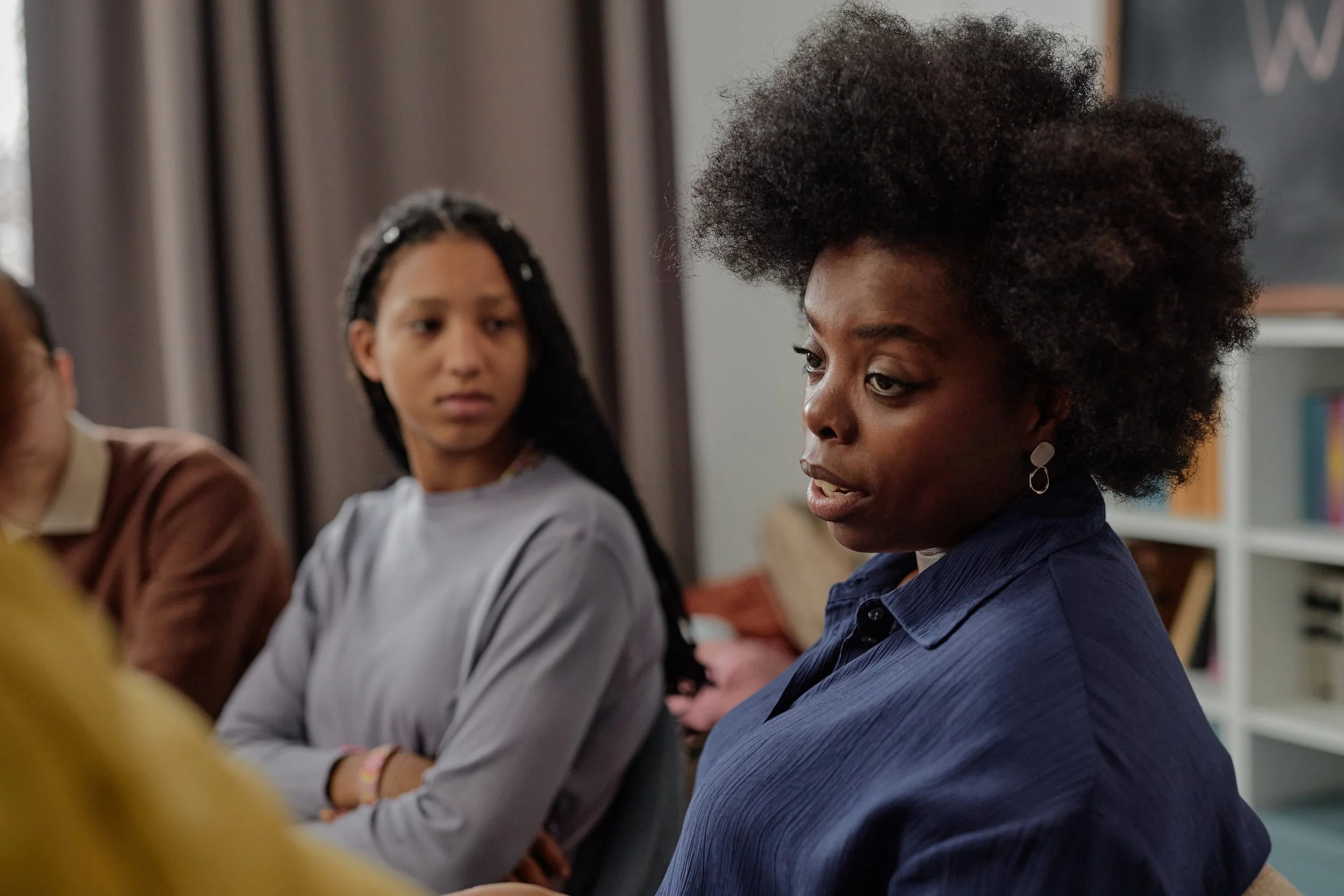Dismantling Whiteness in Recovery Spaces
Written by Julissa Minaya
One of the things I have learned while being in the recovery space is the way whiteness is so prominent. I have always felt this in my life living in a predominantly white area and going to a private school, but it also showed up in the recovery space. I was really disappointed to see Black & Brown voices continuously being skipped over and not amplified as much as they deserve to be. This was an issue I saw at 15 and one of the main reasons I decided to create my recovery account on Instagram. I didn’t want more people of color feeling like their eating disorder was a “white people thing” because it’s not.
Statistics tell us that eating disorders (and mental health in general) are not just issues white people deal with. Around 50% of Native American adolescents attempt weight loss. Black teenagers are 50% more likely than white teenagers to exhibit bulimic behaviors. Patients of color with self-acknowledged eating and weight concerns are significantly less likely than white patients to have been asked by a doctor about eating disorder symptoms.
Clinicians are being taught a standard that caters to a certain body type and skin color. They may not be able to control what is being taught to them, but it is their responsibility to dismantle these beliefs so that patients of color receive the acknowledgement and treatment they deserve.
People of color deserve to be seen, heard, validated and treated appropriately. This raises the question of how we do that in a healthcare system that is centered around thin, white bodies. It’s not possible to change this system overnight since it has to do with systemic racism and a dynamic that has dominated the US since the beginning. Something that we all can do, clinicians or not, is work on this individually. This raises the question of where and how to start. The first thing I recommend is diversifying your feed. This means finding eating disorder recovery accounts that have a different perspective to share and one you cannot relate to. Some of my favorite instagram accounts include:@black.nutritionist, @dothetoughstuff, @jeanliu.rdn, @thefriendineverwanted, @alexfoodfreedom, @yourlatinxhaestherapist, @bodyjustice.therapist , and of course, yours truly, @julissas.recovery.
Following these accounts (and I hope more) is just the starting point and bare minimum. Next you need to diversify the content you’re reading. Reading books about eating disorder recovery can be so helpful, but reading books about eating disorder recovery and dismantling your own anti-Blackness and anti-fat bias is so much more impactful. Not only does it strengthen your recovery but it also helps you to be a better ally. A great starting point is Sonya Renee Taylor’s book The Body is Not an Apology. This book was so eye-opening for me and took my understanding of eating disorders, recovery, and intersectionality to a new level.
If people of color are continuously learning new things and growing in this specific topic then there’s no reason white people can’t do the same. Eating disorders are a social justice issue and the only way we can really make progress in acknowledging and treating sufferers of color is by educating ourselves and those around us. Those with the most privilege and power have the ability to make change in the system and they have to start somewhere.
Let’s not let another person of color suffering with an eating disorder go unnoticed and untreated. We have the power to raise awareness and make change, especially white clinicians. So start now, because my people are suffering in silence every single day.
Julissa Minaya (she/her) is a 17-year old woman of color who is passionate about educating people on BIPOC with eating disorders. Based on her own personal experiences, Julissa has a heightened awareness of the lack of representation in the field and is committed to being a part of the change. She deeply understands not only the fear and shame that come with struggling with an eating disorder, but also the added frustrations and challenges one faces when they do not see themselves represented. Julissa’s passion and priority goal is to make BIPOC with eating disorders feel welcomed and worthy.


